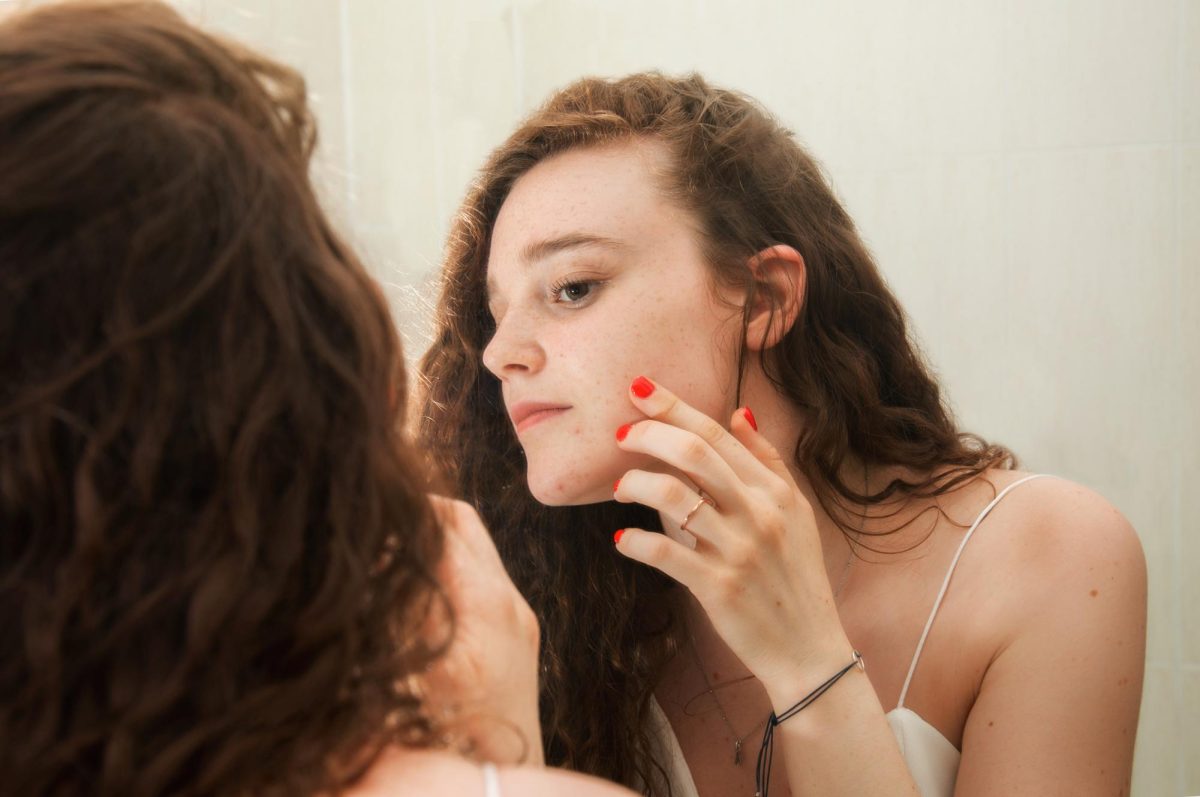When you’re stressed, it shows. Your skin health and mindset might be more connected than you think.
Unfortunately, this sounds like a familiar story for many university students. During a stressful time, you may have noticed that skin conditions like acne and eczema tend to act up. In the last 25 years, researchers have begun to learn more about a field they call psychodermatology, which is the study of the delicate interplay between your skin and your mind.
In 2001, researchers wondered what was happening to their students’ most important barrier to the environment: their skin. They studied 27 graduate students at times of higher and lower stress. The researchers measured the students’ psychological stress and skin barrier permeability right after their return from winter break as a baseline for a low-stress time and then once again during a time of high stress, which, you guessed it, was during final exams. After a defined injury to the skin, the researchers showed that during times of higher perceived stress, the students’ skin was slower to recover than during times of lower perceived stress.
Based on their findings, the research team proposed that students’ stress could be a factor in initiating or worsening skin diseases. A complex interaction between your mind, immune system, and skin may help cause eczema sprinkled on your arm while writing that term paper.
Eczema prevention
We can’t stop taking tests, and we can’t magically make ourselves less stressed out … or can we?
Earlier this year, researchers from Stanford compared mindfulness meditation techniques against controlled breathwork, and the results were surprising. Breathwork control was more effective at improving positive attitude and decreasing respiratory rate. The best method for improving mood was a breathing technique called cyclical sighing. Cyclical sighing involves breathing in through your nose slowly until your lungs feel relatively full and then inhaling again until it feels like your lungs are as full as possible. Then, slowly breathe out until your lungs are empty. Repeat this pattern for up to five minutes. This new twist on your oldest skill might be just the tool we have been looking for to decrease general stress and alleviate the skin issues that come with it.
At the end of the day, being a student is stressful. The most important thing you can do is start one daily practice, even if it is small, and stick to it. So, remember to take a deep breath the next time you’re gearing up for the big test. Your skin might even thank you for it.
Will Moody is a second-year Carver College of Medicine student at the University of Iowa.
Columns reflect the opinions of the authors and are not necessarily those of the Editorial Board, The Daily Iowan, or other organizations in which the author may be involved.



